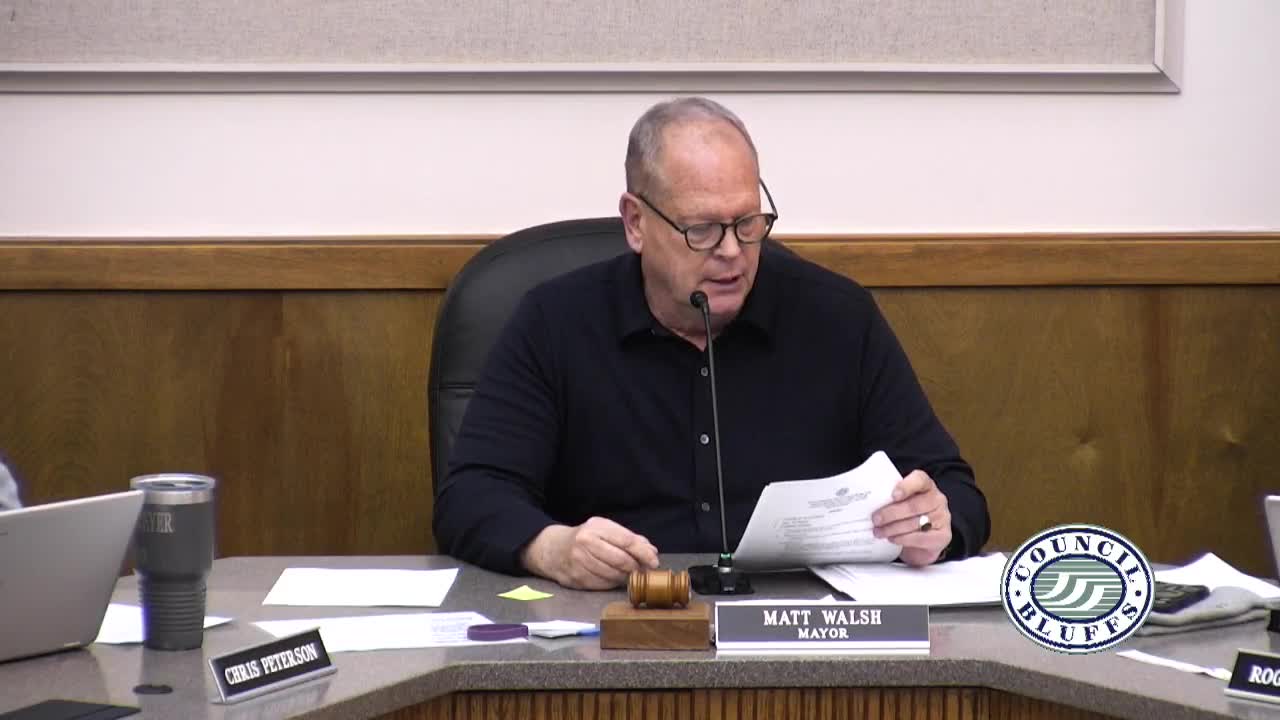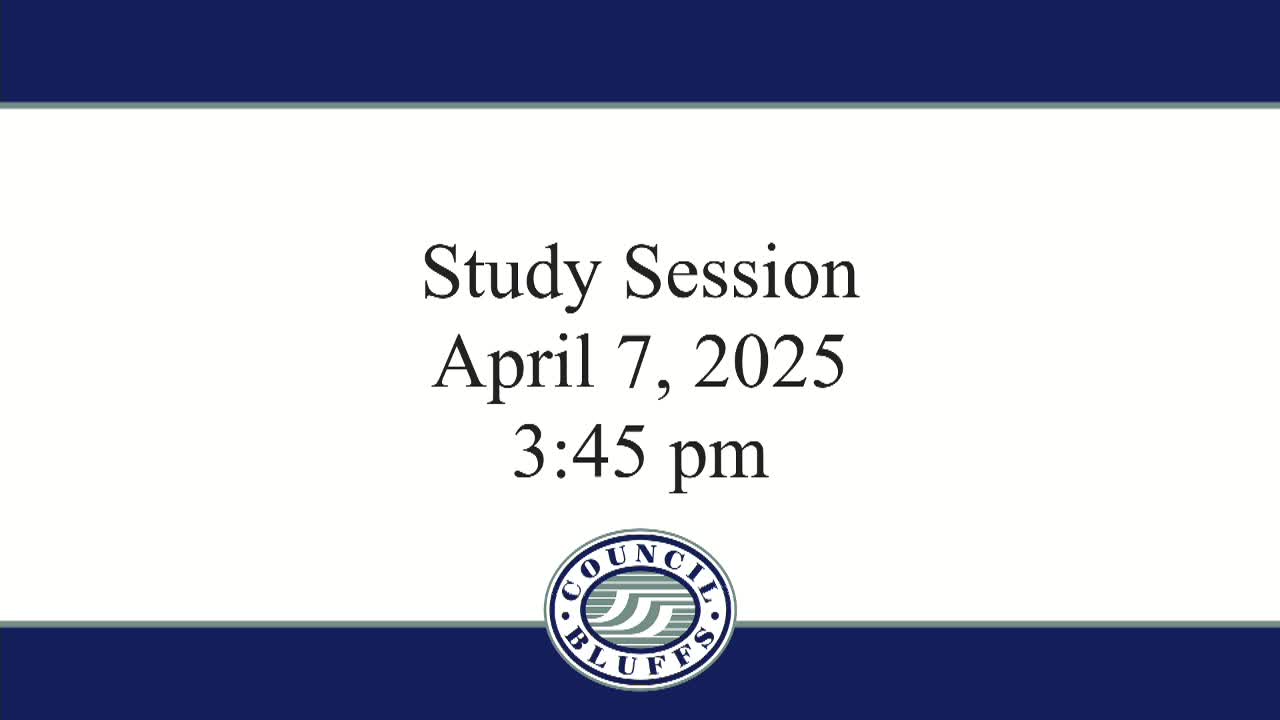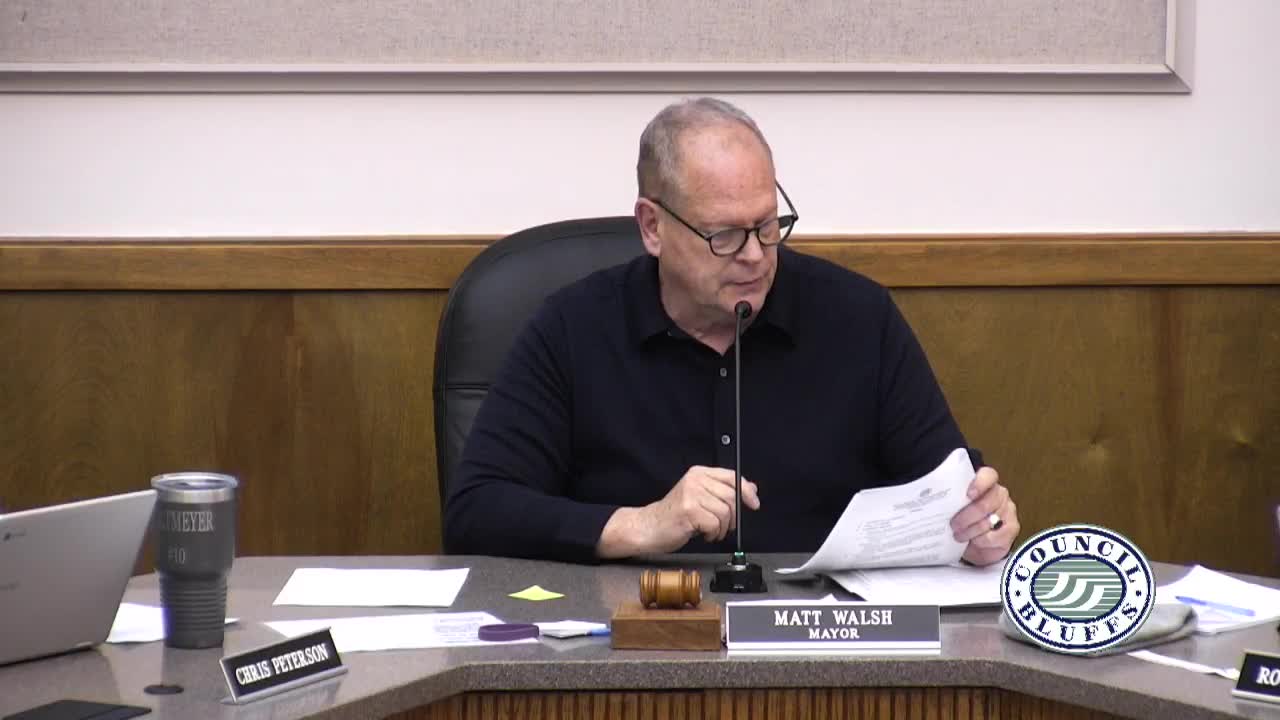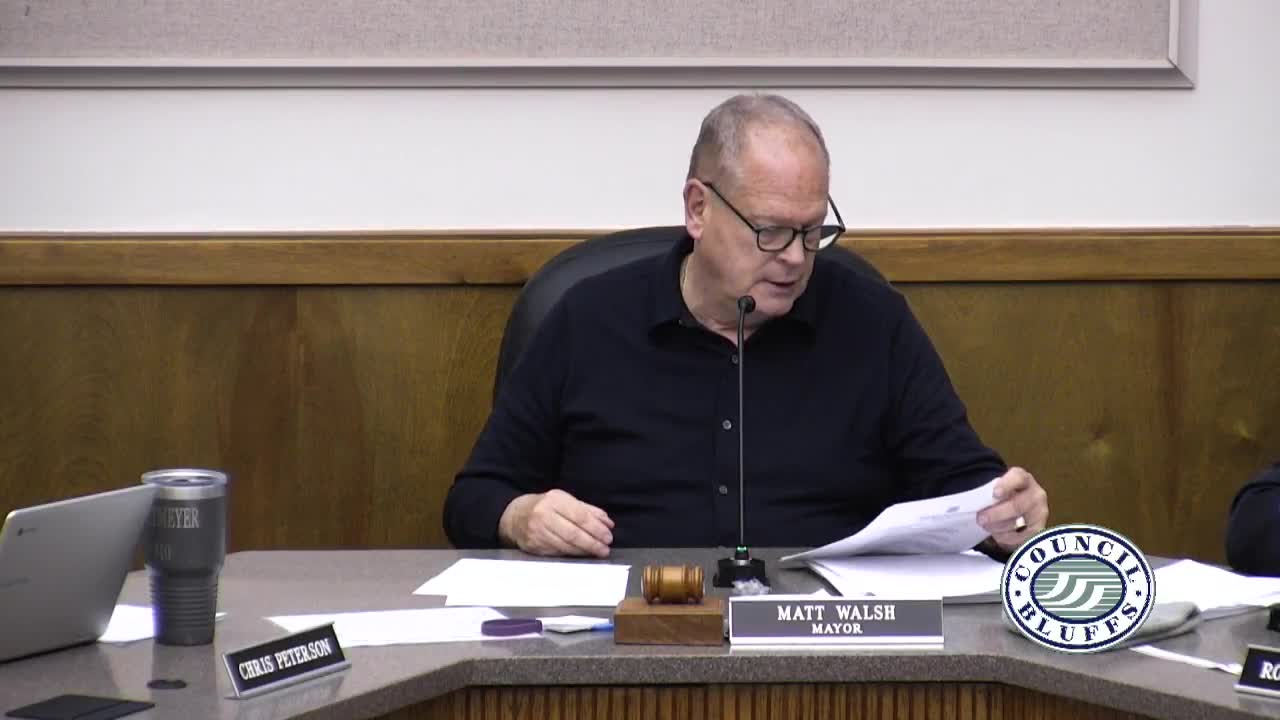Article not found
This article is no longer available. But don't worry—we've gathered other articles that discuss the same topic.

Council actions at a glance: rezoning, RFPs, urban renewal tax ordinances, projects and permits

Wheelchair user asks council to fill short sidewalk gap on College Road

Council Bluffs holds budget hearing; officials explain property tax math and CIP priorities

